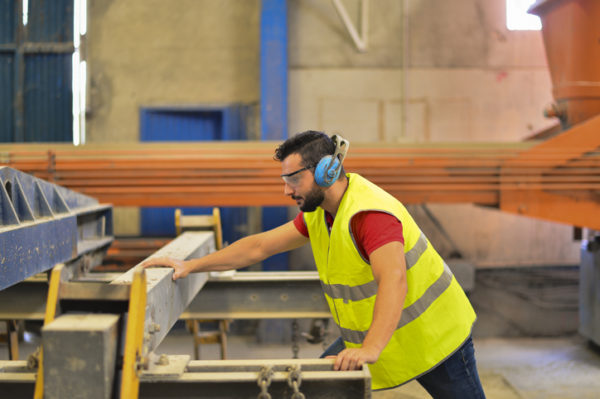
A workers' comp attorney in San Diego, CA discusses work-related hearing loss
Every time they go to work, millions of Americans are exposed to "hazardous" noise levels that can lead to partial or total hearing loss.
About 22 million workers are exposed to hazardous noise levels each year, according to the U.S. Centers for Disease Control and Prevention. In California, employees who suffer hearing loss due to on-the-job conditions are often entitled to workers' comp.
Many of the state's top industries create noise that can cause hearing loss. Among the workers most at risk for occupational hearing loss are those who work in the military, shipbuilding, ship repair work, manufacturing, truck drivers, musicians, DJs, nightclub workers, lumberjacks, garbage collectors, and construction workers.
Workplace noise has reached a "hazardous" volume when employees frequently have to endure noises of 85 decibels or above — about as loud as a gas-powered leaf blower. About 25% of workers with hearing difficulty attribute the problem to workplace exposure.
Workplace hearing loss
On-the-job hearing loss can often be reduced or prevented, workplace safety advocates say, but action has to be taken before damage is done.
October is national "Protect Your Hearing Month," which means organizations are sharing all kinds of tips on how to protect your ears from common loud noises and preserve your hearing abilities.
For the most part, employers must provide some measures to protect workers' ears. This may include providing personal protective equipment like earplugs or making infrastructure changes to reduce noise.
If you think your hearing is getting worse, it is important to see a doctor. A medical professional can determine the cause of your hearing loss and suggest ways to prevent further damage. Hearing loss can come on gradually and people with poor hearing don't always notice when it has happened.
Early signs of hearing loss include:
- Speech and sound seems muffled
- Trouble hearing high-pitched sounds like birds, doorbells, telephones, and alarm clocks
- Trouble understanding conversations in noisy places
- Difficulty understanding speech over the phone
- Hard time hearing consonants and distinguishing the difference between 'S' and 'F' or 'P' and 'T' sounds, for example
- Asking people to speak up, repeat themselves, or talk more slowly
- Turning up the volume on TVs, radios, smartphones, etc.
- Ringing in ears (Tinnitus)
- Hypersensitivity to certain sounds (Hyperacusis)
Protecting employees' ears
When it comes to hearing loss, prevention is key. Reduced hearing due to loud noises is permanent. Employers must do their part to help stop hearing damage, but employees can take an active role, too.
Tips to avoid hearing loss include:
- Wear earplugs or noise-reducing earmuffs when using loud equipment
- If possible, consider noise levels when purchasing new tools
- Turn down the volume when using headphones
- Moving away from speakers at concerts and large events
- Using hearing protection like earplugs, noise-canceling headphones, or noise protection earmuffs when around loud noise
- Talk to your doctor if you are concerned about hearing loss
Legal help is available for injured workers in California
Hearing loss is a permanent condition. People should not have to sacrifice their ears to make a living.
If you or a loved one is suffering from hearing loss due to work conditions, you should talk to a lawyer about your legal rights and options. At McLaughlin & Sanchez, our attorneys help people who have been hurt on the job in Southern California pursue the workers' comp benefits they need and deserve.
Contact us today to schedule a free consultation with an experienced California workers' comp attorney. We have offices in San Diego, Temecula, and Chula Vista—or we can come to you.
